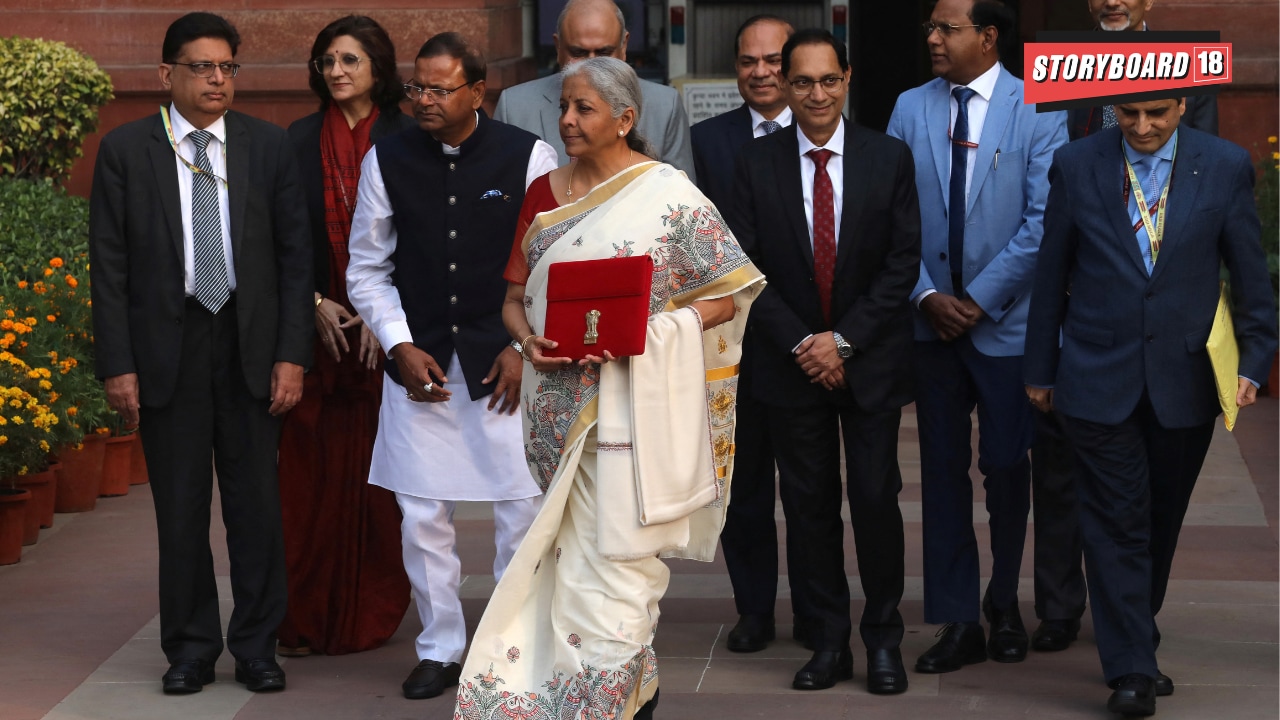Finance Minister Nirmala Sitharaman is set to present the Union Budget for the 2025-26 financial year today, marking a historic milestone as the first finance minister to deliver the budget for eight consecutive years. While this achievement cements her place in the annals of India’s fiscal history, it is former Prime Minister Morarji Desai who retains the overall record for the most Union Budgets. Desai, a veteran of India’s financial landscape, presented a total of ten budgets—six as finance minister from 1959 to 1964, and an additional four during his tenure from 1967 to 1969.
Ahead of her presentation of the Union Budget, the FM was warmly greeted with the customary tradition of ‘dahi-cheeni’ (curd and sugar) by President Droupadi Murmu. The symbolic gesture, which is meant to bring good luck and sweetness to the occasion, is a long-standing ritual before the unveiling of the Budget.
The budget is expected to emphasize fiscal prudence and measures aimed at boosting consumption, reflecting the government’s continued focus on economic stability and growth amidst ongoing challenges.
“Through initiatives that stimulate spending, policy overhauls, incentive schemes, digital advancements, and eco-friendly practices, the government has the opportunity to foster a robust and equitable retail environment,” said Paresh Parekh, Partner and Retail Tax Leader at EY India.
Experts have called for the Budget to prioritize the enhancement of rural infrastructure and the expansion of direct benefit transfer (DBT) programs, which they argue could play a pivotal role in boosting disposable income in underserved regions. Such measures, they suggest, have the potential to stimulate consumption patterns, particularly in areas that have long been overlooked in terms of economic development.
Startups
Edtech startups are looking to the upcoming Union Budget with anticipation, hoping for measures that will foster digital education, skill development, and infrastructure growth. Industry leaders are particularly advocating for tax incentives and benefits, alongside GST exemptions for underprivileged students. There is also a strong push for a reduction in GST rates on educational products and services, which they argue would make learning more accessible and affordable for all.
Insurance
The insurance sector is calling for a reduction in GST and tax exemptions on premiums, with the aim of making policies more accessible to citizens. Advocates argue that such measures would incentivize greater investment in insurance, particularly health coverage, by easing the financial burden on policyholders. Currently, the 18 percent GST on insurance premiums is seen as disproportionately high compared to other sectors, and a reduction could significantly lower costs and encourage wider adoption of insurance products.
Jewellery
The jewellery sector is looking to the upcoming Union Budget with hopes of relief from tax burdens and measures to promote gold monetisation. Industry experts are advocating for a revision of GST rates and a concerted push towards reducing reliance on gold imports by encouraging the formalisation and monetisation of gold holdings. Such steps, they argue, could help streamline the industry and provide a boost to domestic gold reserves.
Real estate
As affordable housing continues to be a pressing concern for India’s middle class, the real estate sector is hoping for significant policy reforms in the upcoming Budget to address the rising costs. Experts suggest that initiatives like the Credit-Linked Subsidy Scheme (CLSS) under the Pradhan Mantri Awas Yojana (PMAY), coupled with tax incentives for developers, could help make homes more accessible. These measures, they believe, are crucial in alleviating the financial burden on middle-income families and ensuring the delivery of affordable housing in urban areas.
Hospitality and tourism
The hospitality and tourism sector is eagerly awaiting the Union Budget, with industry leaders pushing for essential reforms to support growth and attract investment. Key demands include granting infrastructure status to smaller hotel and convention projects, tax rationalization, and the simplification of compliance frameworks. The Federation of Hotel & Restaurant Associations of India (FHRAI) is advocating for a single-window clearance system at both state and central levels to streamline processes and reduce bureaucratic hurdles. With these measures, the sector aims to bolster both domestic and international investments, further establishing India as a global tourism hub.
India Inc. is looking to the upcoming Union Budget with hopes for a reduction in the corporate tax rate, as businesses continue to grapple with both global and domestic challenges. A tax cut, industry leaders argue, could provide much-needed relief and stimulate growth, particularly in the manufacturing and infrastructure sectors. Such a move would not only incentivize expansion but also enhance competitiveness in these critical industries, driving broader economic recovery and growth.
